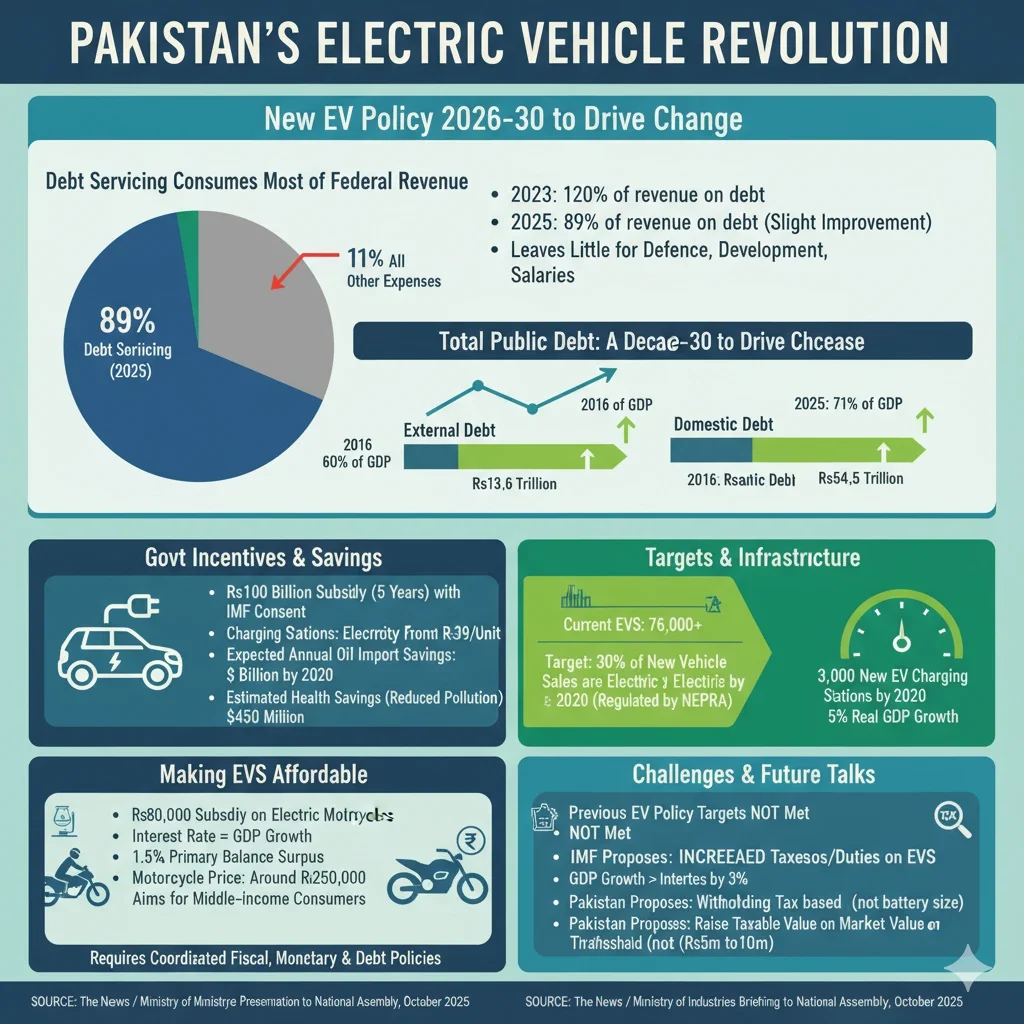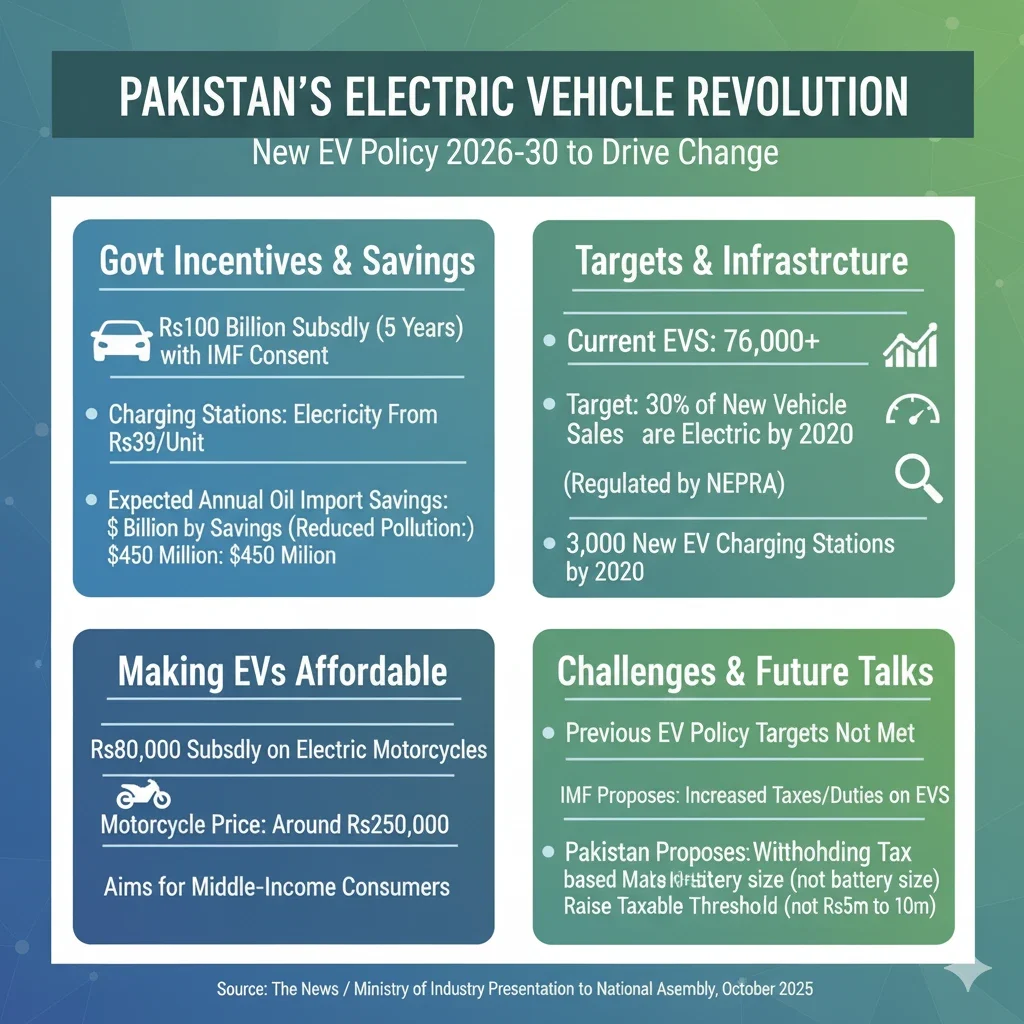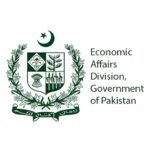By Abdul Ghani
The International Finance Corporation (IFC), part of the World Bank, has given a grant of US$1.8 million to Pakistan to support private sector investment in local EV production, a move that could reshape the country’s transport and energy future.
This effort marks a major milestone in the ongoing Pakistan electric vehicle policy, aiming to shift the country toward cleaner and more sustainable mobility.
IFC Grant to Boost Local EV Production
The funding comes under a broader effort led by the Ministry of Industries and Production (MoIP) to create a national policy for electric vehicles (EVs). The goal is to speed up EV adoption across Pakistan and attract serious investors into the clean transport sector.
According to documents reviewed by this reporter, a steering committee was formed on September 13, 2024, under the Minister for Industries. Its job: design a detailed policy framework to guide the shift toward electric mobility.

The committee held several rounds of meetings and set up six working groups focusing on technology, infrastructure, tax incentives, and investment promotion.
Experts Developing the National EV Framework
The technical side of the policy is being developed by a team led by Dr. Horizon Walker, a well-known global expert on electric vehicle systems.
His team studied successful international EV programs, reviewed Pakistan’s current policies, and held over 60 consultations with stakeholders from the public and private sectors — including provincial governments, universities, and industry groups.
By November 2024, the committee completed the first draft of the policy. The International Monetary Fund (IMF) later identified it as a major part of Pakistan’s green economic strategy and included it in a US$1.4 billion package under its Resilience and Sustainability Facility (RSF).
Government Sees EV Policy as Industrial Turning Point
Saif Anjum, Secretary of Industries and Production, told the Standing Committee on Finance and Revenue that the IFC’s financial support is a turning point for Pakistan’s industrial policy.
He said the grant would help local manufacturers reduce dependence on imports and encourage private investment in clean transportation technology.
The EV policy — supported by both the IMF and IFC — is expected to launch later this year, marking a big step in Pakistan’s move toward sustainable transport.

Environmental and Economic Benefits of EV Transition
Beyond industry, the EV policy has major environmental and economic goals. Under Pakistan’s Paris Agreement commitments, the country aims for 30 percent of all new vehicles to be electric by 2030. Its Nationally Determined Contributions (NDCs) also target a 50 percent cut in greenhouse gas emissions by the end of the decade.
Experts say hitting these targets could help Pakistan avoid 4.5 million tons of CO₂ emissions each year. Cleaner air could also save around US$405 million annually by reducing health costs and improving worker productivity.
Reducing Oil Imports and Power Waste
The shift to EVs could also help Pakistan make better use of its 12 to 16 terawatt-hours of surplus electricity.
Currently, much of this power goes unused, but electric vehicles could absorb that extra capacity — helping the power sector run more efficiently and easing the financial strain of paying idle power plants.
Pakistan spends around US$16.9 billion every year on imported oil — a major hit to its foreign reserves. The new EV policy could cut oil use by 2.07 billion litres annually, saving roughly US$1 billion by 2030.
Those savings would strengthen Pakistan’s balance of payments and reduce the financial burden from fuel imports and subsidies.
Job Creation and Industry Growth Opportunities
The policy isn’t just about cleaner air and cheaper fuel — it’s also about creating jobs. By opening the door to EV manufacturing, Pakistan has what officials call a “time-limited opportunity” to expand its technology sector and become a regional hub for EV production.
This includes industries like battery production, charging stations, and smart grid systems. With strong international support and clear government direction, analysts believe thousands of new jobs could be created in engineering, assembly, maintenance, and component manufacturing.
Author Profile
-
Abdul Ghani is a sharp analyst focused on Pakistan's industrial transformation. His reporting reveals the textile sector's pivot from basic cotton to high-growth value-added apparel.
Ghani's work underscores the triumph of knitwear and garments in boosting exports, while warning policymakers to tackle energy costs to secure long-term global competitiveness.





